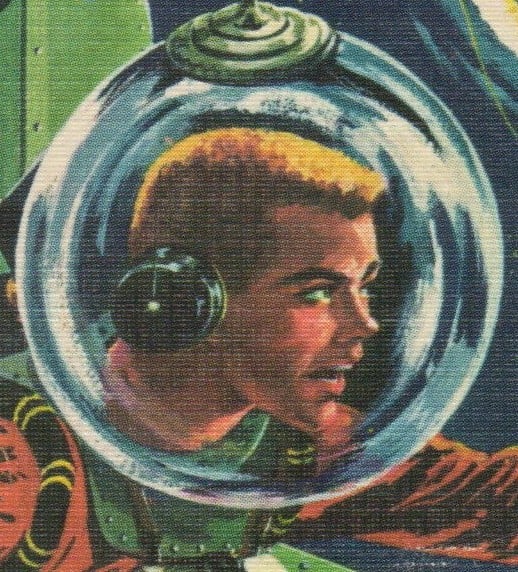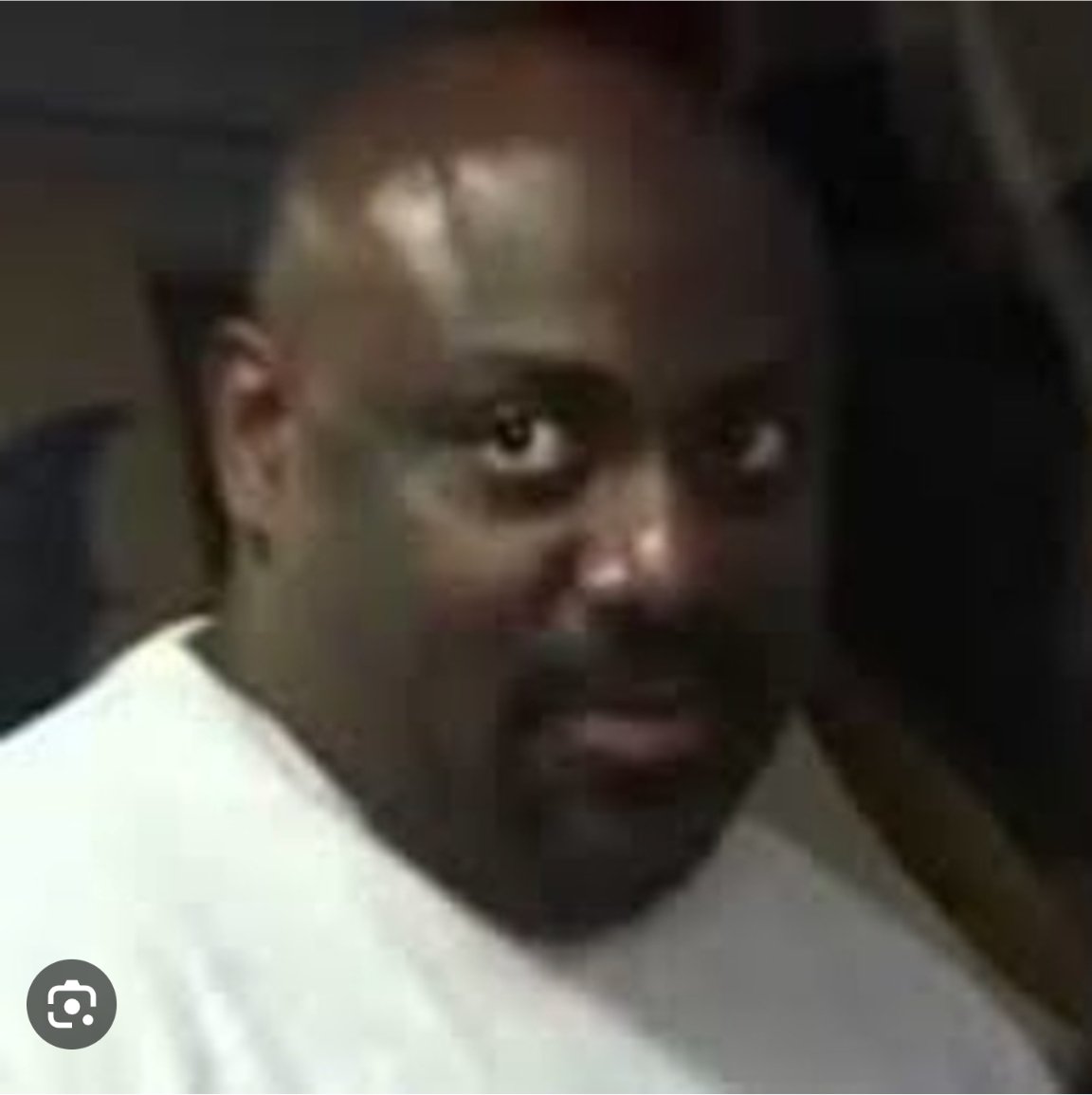Given the harmful effects of light pollution, a pair of astronomers has coined a new term to help focus efforts to combat it. Their term, as reported in a brief paper in the preprint database arXiv and a letter to the journal Science, is “noctalgia.” In general, it means “sky grief,” and it captures the collective pain we are experiencing as we continue to lose access to the night sky.
Don’t think I’ve ever seen a legit night sky in person.
I saw the Milky Way for the first time when I visited Cooperstown New York 5 or so years back. My neck was sore by the time I stopped looking. It’s a shame most people don’t know what they’re missing out on.
When I lived out in the country I could see it almost every clear night. I could also watch satellites drift overhead, and there were so many fireflies I could walk through the woods at night without a flashlight.
Suburbs fucking suck.
I used to live in Michigan. My family had a farm, nearest city was like 30 miles away, and it wasnt even a large city. I could see the stars and occasional nebula. I remember one winter, my family even saw the Northern Lights. It was magical.
Now I live in Tennessee, in a suburb. I’m lucky if I see a few stars at night. I hate it. I miss the night sky.
Living in a tiny town has its drawbacks and everyone knows everyone’s business, but if you get the urge to just be alone you can head off in any compass direction and find peace out in nature. Sure the takeout options are more varied in the city but constant traffic noise fucking hurts my head and I can’t see any constellations anymore
That’s the best part, I didn’t live in town. They could have their petty bullshit, I just wanted the stars
I like living near people but the dark night sky would be a welcome change.
The lack of fireflies aren’t a rural/urban thing, I don’t think. I’ve always lived in suburbs of a mid-size city and definitely remember fireflies swarming around as a kid, too.
I only moved about three years ago, so it’s definitely a rural/suburban thing. However, the suburbs have waaaaay less fireflies than a decade ago.
Check out Cherry Spring state park. It’s a dedicated star park in mid north PA classes as Bortle 2 light pollution (cities are 8+, uninhabited it 1)
Edit: don’t forgot to avoid the moon
The Milky Way may be closer than you think. I had never really seen it until a few years ago. I was in my usual darker spot and took a picture of it with my phone’s astro mode. I looked back up and suddenly, there it was. I just never knew what to look for or, more importantly, just how big the visible structure was.
I recommend taking a look at lightpollutionmap.info and seeing what’s around you. I’m in a major city metro but dark-enough skies are less than 2 hours away. The Milky way revelation was in a “Bortle 5” zone (red on the map). Cities are class 8+, oceans/uninhabited is class 1. Constellations help you find the core (namely the tea pot/milk dipper asterism) and knowing what time of year/night to look is important. August is the usual ~10pm month but you can go out later at night earlier in the year and vice versa from about April (close to sunrise) to October (near sunset).
Be aware you need to adapt your eyes. Pupils dilate in seconds but the 20 minute thing comes from replenishing rhodopsin in your eyes. White/blue/purple light bleaches that compound but red doesn’t. With enough commitment and knowledge at that same place, Andromeda becomes a naked eye object for me. Extremely faint and just a smudge, but unmistakable.
I live in that gigantic red and purple blob in Northern Europe and I’m lucky if I can see 3 stars in the sky at night.
I’ve never ever seen a totally star-filled sky and it’s something I’m very sad about. One day I’ll head out to somewhere like the Australian Outback and just gaze up in awe.
The irony is that most of us live in a red/purple blob. A light pollution map pretty accurately matches population heat maps. The only outlier tends to be some resource mines, especially petroleum/gas fields with constant waste fires
I live in Italy. The map doesn’t show a single spot below yellow in my entire country.
I’ve never seen a clear sky in my life.
As someone living in a purple/white zone, the red zone really is magnificent by comparison. It’s clear enough when avoiding street lights that when I step out of the car, despite the dash and headlights affecting my adaptation, I immediately see the Milky way. Yellow is a step clearer, so don’t be discouraged
Come to the UK. We’ve got official Dark Skies status in Bannau Brecheiniog (formerly the Brecon Beacons). Probably a lot easier for you to get to :)
Wow! I’m closer than I thought! Thanks so much. This may change where I camp this weekend.
Sounds like you might have some binoculars. 7x35 or 8x42 or 10x50 binos are great for scanning the night sky. Outer lens diameter divided by zoom = inner lens diameter which you want to be 5mm or greater. 35/7=5 and 42/8=5.2 etc. Some larger “deep sky objects” such as Andromeda galaxy, Lagoon Nebula, Orion Nebula, and Hercules cluster pop right out in my nikon ae 10x50s. Again, they’re just smudges, but they’re such stationary smudges you’ll swear the sky is a painted dome.
Neat map, thanks. I’m not terribly far away from clearer night skies, but I’m down in the red-purple and not particularly mobile.
Yeah, I just saw the Andromeda galaxy for the first time in Saturday night. Naked eye viewing, but had to use my sky map app to locate it. Holy shit! Was amazing. Luckily we brought binoculars so I could really see it.
As far as unaided viewing goes, it doesn’t get any more other-worldly than that!
Look up a light pollution map for your area, it will show you the darkest parts around you to go see the sky for what it really is. Usually within an hour or 2 of anywhere there is a place dark enough to see the milky way with your own eyes.
Thank you! I’ve been wanting to take a long exposure night sky. And your advice is perfect!
Dslr? You can (and should) practice more locally. Theres enough stars to figure out what lens/shutter speed combos work in addition to looking up the rule of thumb equation. But none of us ever take that advice anyway
it always seemed a bit like something in cartoons. it must’ve been so much more vibrant in ancient times, it makes sense why they were so into star tracking. like a big soap opera
I haven’t seen the Milky Way for maybe 15-years. Even at my camp in the boondocks, nada. You have to really get out there, can’t imagine where I would go from NW FL.
Drive up to West Virginia? Seriously, I’m looking at a light pollution map and it’s crazy. I’m gonna drive out west of Kerrville, TX and take a gander.
The dark spot in WV might be one of the uninhabited regions featuring a radio telescope facility. Get close enough and they’ll start hunting you down for cell phone noise!
I saw one in the great sand dunes
I grew up next to very high mountains, it’s ideal for watching the nihhtsky. No picture, video or painting can transcribe the experience. It’s overwhelming, and very hard to see it being lost…
Last time I saw one, I was a Boy Scout at Camp Barnhardt. I think that was in South Carolina.
Well, it’s possible to find places even under fscking Moscow to watch stars. Far from residential areas and any street/road lighting and traffic, naturally, somewhere in the forest.
I was ready to see the Milkyway in Colorado a few years back but there was wildfire smoke covering the sky the entire time I was there.
I did get to see it just a bit in Arkansas last year(it really wasn’t as dark as I’d have liked it). I was doing some long exposures with a camera and my mom says “Wow it’s a pretty clear night except for that one cloud…”
A few years ago, I moved from Chicago to a medium sized city in Colorado. Even with the light pollution we have in my city, the stars are still great. In Chicago I was lucky to see fifteen stars on a clear night.
Ok I’m probably just being stupid, but can someone tell me why everybody’s talking about seeing the milky way? Aren’t we part of the milky way? Do you just mean the other stars and stuff?
When you get away from light pollution you can see a lot more stars and a bright line called milky way. We are part of the milky way and you can see the rest of it.
It looks [https://hr.m.wikipedia.org/wiki/Datoteka:Milky_Way_Night_Sky_Black_Rock_Desert_Nevada.jpg](like this).
In the summer, at night, we’re facing the galactic center. You can see the cloud of uncountable stars held close to the supermassive black hole at the center, and you can see the band of light spanning the sky that it the rest of the disk and arms.
It’s the reason the galaxy is called the Milky Way, because those billions of stars looks kinds like somebody spilled milk all across the night sky.
If you are in the darkest parts of the world I think you can still see it a bit in winter but you’re looking outward into intergalactic space, so it’s much fainter, only showing the stars in our arm that are even further out.
I didn’t see the milky way until I was in my 30s
I have, but only when I visit my uncle’s cottage which is way out in the boonies of Northern Ontario
There was a NASA lady on StarTalk recently talking about how there’s something like 360,000 more satellites planned/approved to go into orbit and it’s going to completely erase the night sky. We’re at something like 7700 currently.
We are slowly turning ourselves into Krikkit.
Soon as we invented the little green piece of paper it was all downhill from there
Should never have gotten down from the trees
But digital watches are pretty cool, aren’t they?
Ehh apparently it’s 11330 as of the end of June this year.
If you have seen that StarTalk episode, do you remember what Neil DeGrasse Tyson’s response to that? He seems like good people…
I don’t recall offhand his response but I believe it was this episode: https://startalkmedia.com/show/the-story-of-space-imaging-with-carolyn-madam-saturn-porco/
What was it?
deleted by creator
It’s shocking how many lights are left on during the night in a city or a built up area. Does a big box store need to keep its logo lit all night? We’re so desperate to shut out the beauty of the planet and blind ourselves with human made ugliness.
It’s frustrating how many people have security lights aimed wrong. They’re often aimed high, wasting light to the sky, and they’re often mounted low, blinding you walking into your own home and leaving you vulnerable.
Or those backyard street lights bright enough an airplane could land with!
The sad irony is that with no around to monitor the property, these [in]security lights are often just providing light to any thieves. If you see flashlights bobbing in a yard, it’s suspicious. If you see someone walking through someone else’s yard, it might just be the owner. If you light the yard and you aren’t around to look, do the thieves make a sound?
Be nice if everyone just used infrared and/or motion detection. There’s no reason to have outdoor lights on all night.
This. I’m visually impaired and actually need a lot of light to operate normally.
At one point in my life I lived in a large building where all the hallways were operated by infrared sensors. It was honestly pretty cool to just walk around and get the light I needed without pressing any buttons.
I’ve often thought about how neat it would be if we could do same for outdoor spaces.
TBH if I’m out at night I’d much prefer it to be bright and lit up in the city. If the city is dark and quiet at night it feels more unsafe to residents.
Not saying it’s right, but it makes sense
The city can be lit and bright and keep the light pollution to a low. If only street lights were on, and these were directed towards the ground.
Additionally, you’d use a different kind of light for street lights. On the island of Hawaii, that island specifically has a light pollution law that mandates all street lights have to use an orange light bulb, and they can only be in certain places. It’s amazing because you can see so many stars in the night sky.
If city lights are gonna be on 24/7, we should start to see if we can get traction for reduced brightness and installing less light polluting lights.
It’s technically not orange light bulbs they have to use, it’s a specific lamp style called ‘low pressure sodium’
Here’s an article that explains the reasoning behind Hawaii’s lighting sources and the regulations:
https://www.accessfixtures.com/hawaii-lighting-ordinances-dark-sky-regulations/That site is claiming that phosphor-converted amber LEDs provide all the benefits of low-pressure sodium. They do not; one of the benefits of LPS is that astronomers have a very narrow frequency band to filter out, while PC amber is much wider. Monochromatic amber LEDs are more comparable to LPS.
We put a yellow bulb for our house porch light, and it doesn’t even attract bugs! It’s like a win/win.
My gf says the same about our hood. I like it dark as it is. We spend a lot of time walking at night, and I don’t feel it’s any less safe.
If you’re on the street in the dark, your eyes adjust so you can also see into the shadows. If it’s lit up, you can only see what’s in the light.
I’m actually a bit nervous under the bright lights! Having said that, I’m a man and don’t have the same concerns as a woman (in the dark).
On top of that, I almost always carry a pistol with tritium sights or a light. So maybe that’s another reason I’m a bit more confident in the dark?
On top of that, I almost always carry a pistol with tritium sights or a light. So maybe that’s another reason I’m a bit more confident in the dark?
Yeah, carrying a gun everywhere might have something to do with why you feel comfortable and other people don’t.
Meh, a gun is a rock-bottom, last resort thing. It’s not something where a sane person thinks, “I’m armed so I have nothing to fear.”
Hard to explain to someone that doesn’t carry, but it makes one hyper-aware of their situation, because it’s a trump card you don’t want to play. Makes you more likely to avoid risk, if that makes sense.
I’m actually a bit nervous under the bright lights!
Yeah, because everything outside the light cone will be pitch black to you. I think that’s another benefit of those old orange lights. They don’t cause your eyes to adjust, so you can still see well how the surroundings look like.
I walk in the woods behind the neighborhood at night. Without a flashlight, I can see the sandy trail and be aware. With a light, all I can see is what’s right in front of me.
Or the big advertisement screens. I get the need for street lights but they also don’t have to be the most brightest super white LEDs that exist either. Nowadays I literally can’t even tell whether it is cloudy or not, because the sky is just this mushy grey noise. And the sad thing is that I still remember the night sky from a couple decades ago when cities weren’t quite as bright. Now you can be lucky to see the little dim flickering of the brightest odd stars every now and then.
the sky is just this mushy grey noise
You might even say it’s the colour of television, tuned to a dead channel
As someone currently living across the road from a strip mall with a dozen various businesses…NO YOU DO NOT NEED TO KEEP THE LIGHTS ON 24/7
Reminds me of how we sometimes export light pollution. When I first got to Afghanistan I thought I would be able to see the stars being in the middle of a desert. That idea was quickly made harder to accomplish by the massive light pollution coming from camp leatherneck which, along with the moon dust perpetually floating mid air, killed any chance to see the stars clearly for miles around. Base turned a patch of desert into a sprawling light factory in just a few years.
I feel this.
Srsly, a few weeks ago, I though to take walk at 2 AM, and TF. The sky was literally bright as it was 6PM. Ruined the entire feel for me.
Going to see a decent patch of sky basically requires a vacation to go somewhere else.
I live in the darkest part of my town. When my porch light burned out, I decided to not replace it because sometimes I can see stars at night.
Why is every other website being bought by future inc and using that same layout
Little reminder that your eyes need 30min to adjust to night conditions, and just a second of light to start the counter again. So no smartphones, no watch, no kindle, not even a lighter or the led on your vape, if you want to enjoy the experience fully.
In my parents farm the night sky is perfectly visible. They live far from any town and there are no lights you can’t just turn off so sometimes I just look at the sky when I’m visiting.
Plenty of places like this still in my country thankfully.
I’ve always lived in cities and didn’t see the milky way until I was in my 30s.
Anyhow, I took my kid camping last weekend and she couldn’t believe how many stars there were. We were both enjoying it but then the string of SpaceX satellites went by and kind of ruined the moment
I laughed at that last part. I am sorry that happened to you but it is pretty funny.
Can’t even watch the stars without that dumbass spamming your view field
We were just up in the mountains last weekend, it was by far the best stargazing I have ever experienced in my 40 years. I could see the Andromeda galaxy with the naked eye.
Anyway, I counted over 15 satellites during the 2 hours we were outside, as well as 2 very bright meteors. Plus we saw the international space station and an iridium flare.
Elon ruins everything he touches
Unfortunately, even secluded towns suffer because of light diffusion in the atmosphere. The only places left where you can see it, the way it was before electric lights, are mountains and extremely far places (think middle of the ocean or the poles)
Try in a small town. Seriously, tho villages are better. Go in the backroads, you’ll have plenty of sky and stars to get lost in.
You’d be surprised how much “bleeding” there is. You also can’t scope in certain directions because of even really far off cities. You’re often forced into a specific cone.
Perfection is the enemy of “good-enough and be able to experience in this lifetime”
Only in the most remote deserts, wilderness areas and oceans can you find a sky as dark as our ancestors knew them.
deleted by creator
I think it’s quite nihilistic to just accept that there’s no going back to a better night sky as if too many lights being kept on a night is an insurmountable problem.
deleted by creator
The article is about how there’s less of it over time. Areas that were once nice (ex. Great views over the water or over a nice field) no longer work because of nearby light pollution.
There are few places left on Earth to see an unpolluted night sky. Definitely nowhere near civilization. On top of that, light pollution still drowns out dimmer objects permanently. We are blinding ourselves globally. To our ancestors the sky was a living light show. Its no mystery why they thought gods lived there.
In densely populated areas you have to move quite far out to find such places. Like, check a light pollution map and then scroll into central Europe, like around the Netherlands and western Germany. It’s all just a big red blob.
Lived in the city for a few years before moving back to my rural hometown. The night sky without any light pollution was definitely an underrated thing I didn’t realize I missed.
The part that wasn’t in the title:
astronomers have invented a new term to describe the pain associated with this loss: “noctalgia,” meaning “sky grief.”
This feels like it comes from the Dictionary of Obscure Sorrows. It’d fit well
What a simple, great word to describe it.
Only in the most remote deserts, wilderness areas and oceans can you find a sky as dark as our ancestors knew them.
It varies depending on what country your in, but I don’t think people realize how little of a percentage densly populated areas make up of the world. If you’re in the US unless you’re in a place like NY City a 20-45 min drive can get you to a place zero light minus occasional blinks from cell towers/planes/sattalites - and there will also probably be public land there you can go on for free.
And hey, look, the fact stuff like sattalites are interfering with observing the sky isn’t great, but if that sattalite is used for powering agricultural equipment and gathering agricultural data that keeps a billion people from starving to death I’d say that’s a worthy trade off.
Like a life saving drug with side effects, there’s always trade offs as technology and society advance. And mitigating side effects when possible are great, but I thinks it’s important we don’t act like the side effects are occurring in a vacuum, and I would rather live now than in the past without the tech we have now.
if that sattalite is used for powering agricultural equipment and gathering agricultural data that keeps a billion people from starving to death I’d say that’s a worthy trade off.
Those are not the satellites that are the problem. It’s Starlink and other LEO satellites.






















